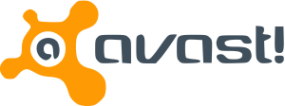Antivirus/Malware Software
We often get asked the question: “What is the best antivirus/malware software?” but before we answer that question, lets define what Viruses and Malware are.
Viruses
Viruses are at type of malware designed to replicate and spread. While malware is a broad term used to describe all kinds of malicious code. Viruses were extremely “popular” in the ‘90s, which is when the term “Antivirus” became common, but today viruses are the minority when it comes to malware. There are, however, a few at-large viruses currently evolving and spreading, these include “ Sality” and “ Virut”.
Viruses are not as common place today as they were in the past but they still exist and pose a security threat.
Malware
Malware typically includes viruses, trojans, worms, adware, nagware, etc. More common than viruses, malware like Trojans, Worms, Backdoors, Exploits, Adware, and PUP (Potentially Unwanted Programs), which can include communication clients, remote desktops and password revealers, just to name a few.
Zero-hour malware can be any type of malware out there that traditional antivirus products have a hard time detecting, so it’s an additional security measure to protect the user from the kind of malware they are most likely to encounter while surfing the web. Most zero-hour malware is distributed in drive-by exploits or even via hacked accounts such as Facebook, Twitter or Skype. Some of the most commonly detected malware include the Zeus banker Trojan, as well as other Trojan malware with the same purpose, such as Reveton ransomware and other types of ransomware that attempt to extort users into paying ridiculous fee, and an array of fake antivirus software (we call them rogue antivirus) that usually allow additional malware to be installed.
The focus of online criminals has shifted and therefore malware has changed. Criminals see today’s online society as an opportunity to steal personal data including credit card and banking details, pins and passwords, and information such as home addresses, phone numbers and even the names of family members. Criminals can, for example, write malicious code and distribute it in the form of a trojan. The trojan can collect personal data which can be sold to crime organizations who can then steal money directly from the victims bank account.
So, again we ask: “Whats the best antivirus/malware software?” And the answer to that is personal preference. There are so many different antivirus/malware software options available and alot of them do a good job.
We at Omega Computer Systems suggest the use of two products and tandem to provide the best protection. We have tested the software in multiple enviroments and have found that while not perfect and 100% fool proof, provide very good protection from viruses and malware.
Malwarebytes Pro
Cost: $24.95
License: Lifetime
Download
Malwarebytes Pro is in our opinion, the best anti-malware sofware available.
Features:
- Detects and protects against malware in real-time
- Blocks hacking and phishing attempts
- Schedules automatic scanning
- Offers three flexible scanning modes
- Compatible with most major antiviruses
Malwarebytes Anti-Malware Pro includes:
- Anti-malware, Anti-spyware, Anti-phishing, Anti-rootkit, Anti-adware, Anti-trojan
- Real-Time Malware Detection and Removal-Three proprietary technologies automatically protect you from malware that antivirus products don’t detect.
- Anti-Phishing and Identity Theft Protection-Blocks malicious websites that steal your credit card information or identity or that install malware.
- Faster Scanning and Minimal System Requirements-Offers a lightning-fast Flash Scan mode and takes up less space on your hard drive than 10 digital music files.
- Malwarebytes Anti-Rootkit-Drills down and removes even deeply embedded rootkits.
- Malwarebytes Chameleon-Protects Malwarebytes Anti-Malware Pro against malware’s attempts to prevent its installation.
Avast! Free Anti-Virus
Cost: Free
License: Lifetime
Download
For very good all around protection from traditional viruses, Avast! Antivirus does the job exceeding well.
Staying Safe Online:
In retrospect, the absolute best defense is knowledge and understanding on how to avoid these threats in the first place. A good browsing and downloading habits will go far to protect you from these threats. Keep these things in mind:
- Keep your software up to date! This is very important! Make sure that your browsers, anti virus/malware software, and your operating system is kept updated with the latest security patches.
- Look for signs of an encrypted Web page when providing sensitive personal information (credit card or banking information, SSNs, etc.) online; key identifiers include a URL for the Web site’s login page that begins with “https” and a padlock icon
 in your browser status bar (the location of this icon will vary based on browser)
in your browser status bar (the location of this icon will vary based on browser) - Make sure the website you are visiting is the real deal! To do this it is important to never click on links to social media sites, banks, or any other site where you enter your personal information. Make sure in the address bar of your browser that the URL to the site you are visiting is legitimate! If you are at www.bankofamerica.com, make sure it says that in the browser address bar.
- Be careful of what you download! Make sure to scan all downloads with your anti virus/malware software. Make sure you download files from legitimate sources you trust.
- Be careful of opening email attachments, even if its from someone you know. Scan all attachments with anti virus/malware software before opening.
- Be wary of public wi-fi! These connections are open and often un-encrypted which means your personal information is at risk for hijacking! Do not do banking, social media or other things that involve using your personal info on public wi-fi. If you must, take advantage of VPN services that will encrypt your data on the public wi-fi.
- Most of all, use common sense. If it seems wrong, it probably is!


